
Cuisine
Salvadoran cuisine
Salvadoran cuisine is a reflection of the country's history and culture. The cuisine is heavily influenced by indigenous, Spanish, and African flavors. The most popular dish is the pupusa, which is a thick corn tortilla stuffed with cheese, beans, or meat. Other popular dishes include yuca con chicharrón, a dish made with fried yuca and pork, and sopa de res, a beef soup with vegetables. Salvadoran cuisine is known for its use of fresh ingredients like tomatoes, cilantro, and lime. The cuisine is also known for its use of spices like cumin and coriander.
Typical ingredients
Corn, Beans, Squash, Tomatoes, Cilantro, Lime, Pork, Beef, Rice, Wheat, Cumin, Coriander
Presentation and garnishing
Salvadoran cuisine is often served on banana leaves, which adds a unique flavor to the food. Garnishes like pickled vegetables and curtido, a type of slaw, are also common.
El Salvador is the smallest country in Central America, but it has a rich culinary tradition that is worth exploring.
More cuisines from this region...
Costa Rican cuisine, Guatemalan cuisine, Nicaraguan cuisine, Belizean cuisine, Honduran cuisine, Panamanian cuisine
History
Salvadoran cuisine has a long history that dates back to the pre-Columbian era. The indigenous people of El Salvador relied heavily on corn, beans, and squash. When the Spanish arrived in the 16th century, they brought with them new ingredients like rice, wheat, and meat. African slaves also brought their own culinary traditions to the country. Over time, these different influences blended together to create the unique cuisine that is now known as Salvadoran cuisine.
Cultural significance
Salvadoran cuisine is an important part of the country's culture. Pupusas are a national dish and are often served at festivals and celebrations. The cuisine is also an important part of family life, with many traditional dishes being passed down from generation to generation.
Health benefits and considerations
Salvadoran cuisine is generally healthy, with a focus on fresh ingredients and simple preparation methods. However, some dishes can be high in fat and calories, so it is important to eat them in moderation.
Salvadoran cuisine dishes

Tamales pisques
Pisque Tamale
Tamales pisques are a traditional Salvadoran dish made from masa dough and filled with a mixture of beans, vegetables, and spices. They are wrapped in banana leaves and steamed...
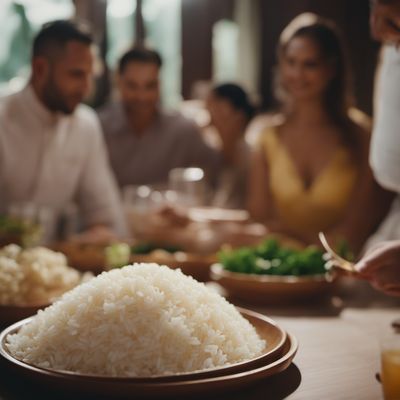
Casamiento
Marriage rice
Casamiento is a traditional Salvadoran dish that features rice and beans cooked together with a variety of flavorful ingredients. This dish is perfect for a hearty and satisfying meal.
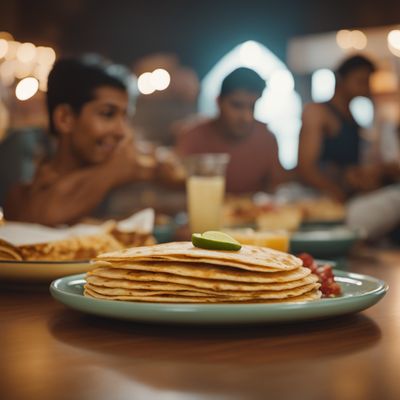
Quesadilla Salvadoreña
Salvadoran Quesadilla
Quesadilla Salvadoreña is a traditional dish from El Salvador. It is a sweet and savory pastry that is filled with cheese, sugar, and cinnamon.

Pupusa
Pupusa is a traditional Salvadoran dish made of a thick corn tortilla that is usually filled with cheese, beans, or meat.
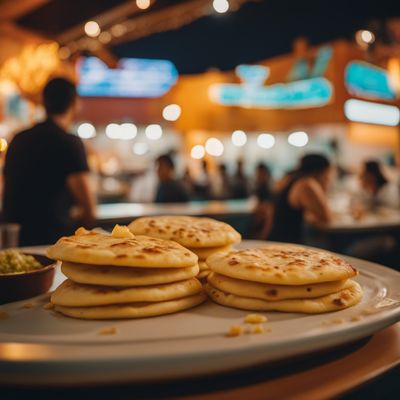
Pupusa de queso con loroco
Cheese and Loroco Pupusa
Pupusa de queso con loroco is a traditional Salvadoran dish that is made with corn masa dough and filled with cheese and loroco flowers.
Salvadoran cuisine recipes Browse all »
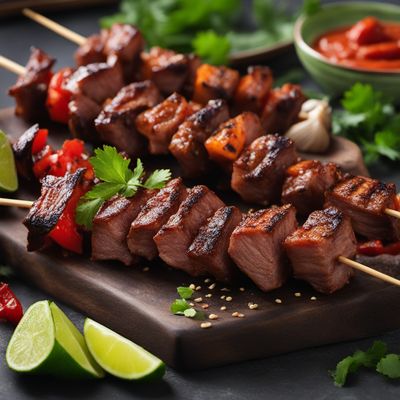
Salvadoran-style Grilled Meat Skewers
Sizzling Salvadoran Skewers: A Flavorful Twist on Grilled Meat

Salvadoran Romesco Sauce
Savory and Spicy Salvadoran Romesco Sauce: A Burst of Flavors
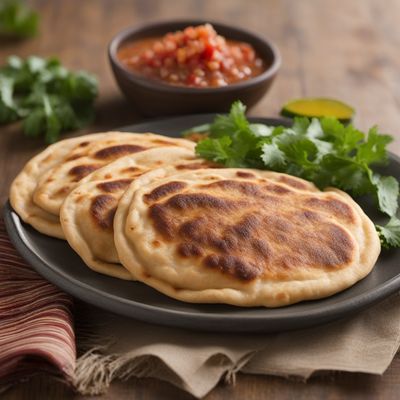
Authentic Salvadoran Pupusas
Savory Stuffed Corn Cakes: Authentic Salvadoran Pupusas
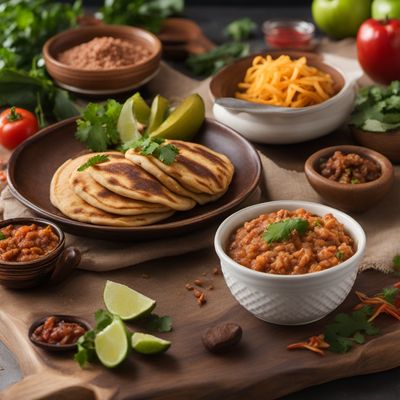
Lekhotloane Pupusas
Savory Stuffed Corn Cakes: Lekhotloane Pupusas with a Salvadoran Twist
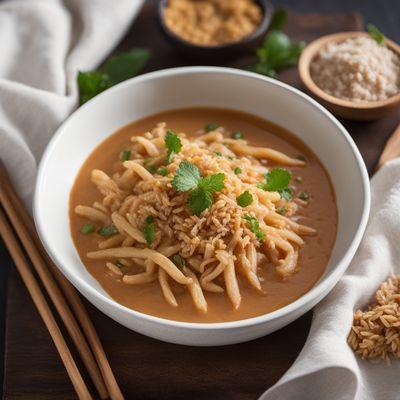
Salvadoran Mazuryky: A Fusion of Ukrainian and Salvadoran Flavors
Tropical Twist: Salvadoran Mazuryky with a Ukrainian Touch
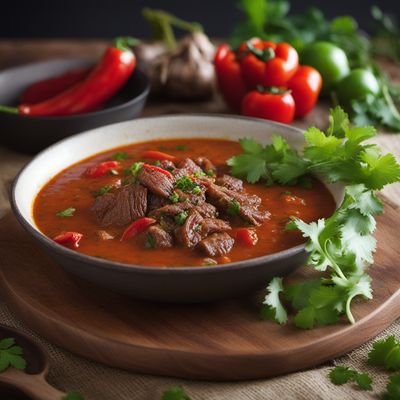
Salvadoran-style Estufao
Savory Salvadoran Estufao: A Flavorful Twist on a Traditional Dish

Salvadoran-style Cebularz
Savory Onion Flatbread with a Salvadoran Twist
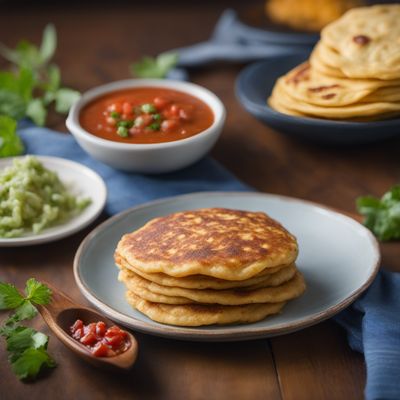
Salvadoran-Style Corn Fritters with Cheese (Pupusas de Maíz con Queso)
Cheesy Salvadoran Corn Fritters: A Delightful Twist on Pupusas

Salvadoran-style Maíz Frito (Fried Corn Fritters)
Crispy Salvadoran Corn Fritters: A Delightful Twist on a Classic

Salvadoran-style Pescado Frito (Fried Fish)
Mar y Tierra: A Salvadoran Twist on Fried Fish

Salvadoran Arroz con Leche
Creamy Salvadoran Rice Pudding: A Sweet Delight from El Salvador

Pupusa de Queso con Loroco
Savory Salvadoran Delight: Cheesy Pupusa with Loroco